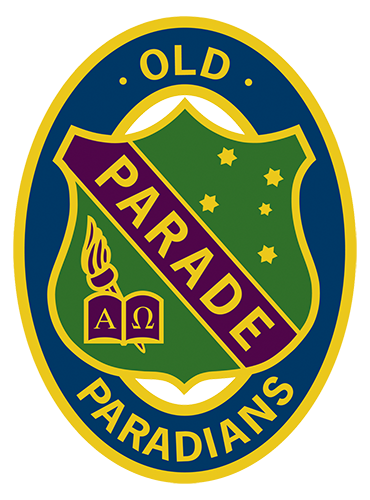

Earlier this month, the Old Paradians’ Association documented the significant responsibilities of Dr Stephen Warrillow (1990), in overseeing the welfare of patients through the course of the COVID19 pandemic, as Director of the Intensive Care Unit at Heidelberg’s Austin Hospital.
Now, on the strength of information supplied by another Old Paradian John Mackey (1950), the Association can report the outstanding contributions of John’s son Paul to the physical well-being of the Indigenous people of far-away Inuvik – the Land of the Midnight Sun – about 100 kilometres from the Arctic Ocean.
Paul is one of four generations of Mackeys schooled at Parade, having completed his final year at the Bundoora campus with the current Principal of the College Andy Kuppe.
This week, Dr Paul Mackey graciously provided the following account (and accompanying images) of his recent foray into Inuvik, where he answered the call at short notice and in trying circumstances to provide emergency help in his role as an Anesthetist.
The emergence of COVID19 has made providing health care even more challenging, particularly in rural and remote communities. Rural hospitals often have only one or two physicians in key roles and thus can suddenly be without a service if these individuals are affected. This happened in Inuvik, North West Territories, Canada when both of the two-Family Physician Anesthetists (FPAs) had to go into quarantine in response to a possible SARSCoV2 exposure. As an FPA (the equivalent of a GP Anesthetist in rural Australia), I was mobilized to travel to the Canadian Arctic to provide relief. A journey that is difficult at the best of times was made even more so by the times.
I graduated from Parade in 1983 and completed medical school at Melbourne University in 1989. I then completed post-graduate training in General Practice and Obstetrics before heading to the UK to acquire training in anesthesia. My wife Lori and I moved to Fort St John in northern British Columbia, Canada, in 1995 where I practiced for 20 years as a rural Family Physician providing Hospital Care, Obstetrics, Emergency Medicine and Anesthesia. After 20 years we took a “gap year”, travelling with two of our four children to work in Uganda, Zimbabwe, Tasmania and the Northern Territory en route to moving to Kamloops in the interior of British Columbia.
From Kamloops I now travel, mostly throughout British Columbia, to provide locum FPA services. Due to an assignment cancellation, I was available at short notice to fill the gap in Inuvik.
Inuvik is the administrative centre in the Beaufort Delta region of the North West Territories in the Canadian Arctic, some 350 kilometres above the Arctic Circle where the Mackenzie River empties into the Arctic Ocean. Getting there by ground transport in winter requires driving on roads cleared on the frozen ice of the river (Ice Road). Thus, the community can be cut off during the spring when the ice starts to break up and until the ferries can run. The journey is “shorter” by air; however, this also takes two days of travel. It became even more challenging in the time of COVID as flights would be booked then cancelled, sometimes just a few hours after being booked.
Because Inuvik is so remote and home to vulnerable Indigenous populations, the Northwest Territory government had regulated significant restrictions on those arriving from out of territory. On arrival I had to be screened and was given a mask that I had to wear whenever I was outside. I was required to remain in my provided accommodation and was allowed to leave only to work at the hospital and to go for short walks. I was not even allowed to go to the grocery store and had to have groceries delivered. I was grateful that Lori had sent me with some dried goods, such as pasta and muesli bars. I did venture out onto the famed Ice Road and for a walk on Boot Lake.
While in Inuvik, I worked in the clinic and the hospital emergency department and provided some emergency anesthesia. Thankfully all was relatively routine, although more complicated and time-consuming with the need to wear personal protective equipment and to ensure diligent infection-control measures.
Fortunately, my return flights remained uncancelled and I was able to leave at the end of my assignment and make the two-day journey home to Kamloops through very empty airports and on very empty planes.
Now I am back home before heading out to my next assignment back in Fort St John. Normally this would be a half-day journey by air but again because of all the challenges of trying to synchronise flights that are increasingly rarer, I am going to make the 13-hour journey by car, up through the interior of BC, through the Pine Pass in the Rocky Mountains to the Peace Region of British Columbia, somewhat fittingly at the headwaters of the rivers that eventually flow into the Mackenzie River and to the Arctic Ocean.
If you are an Old Paradian living and/or working abroad and would like to share your “postcard” with our readers, please contact OPA Central – oldparadians@parade.vic.edu.au